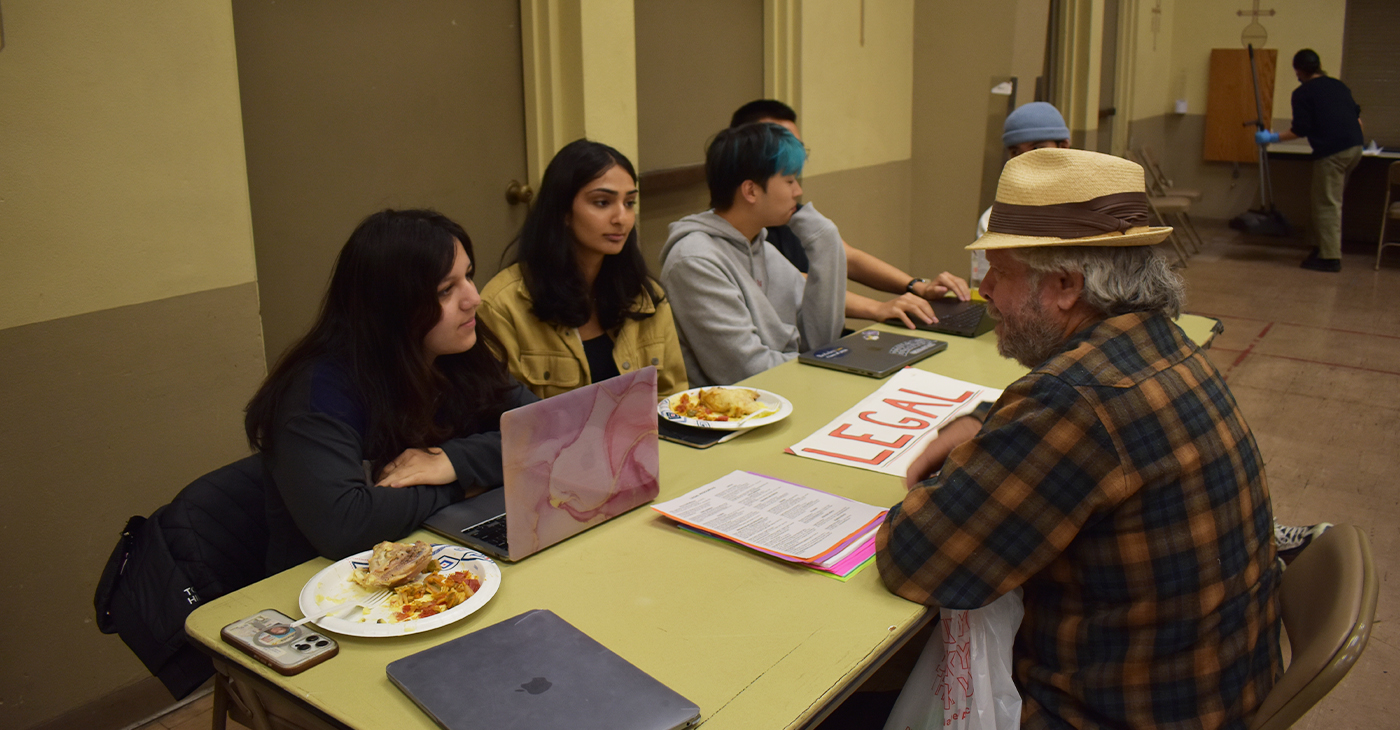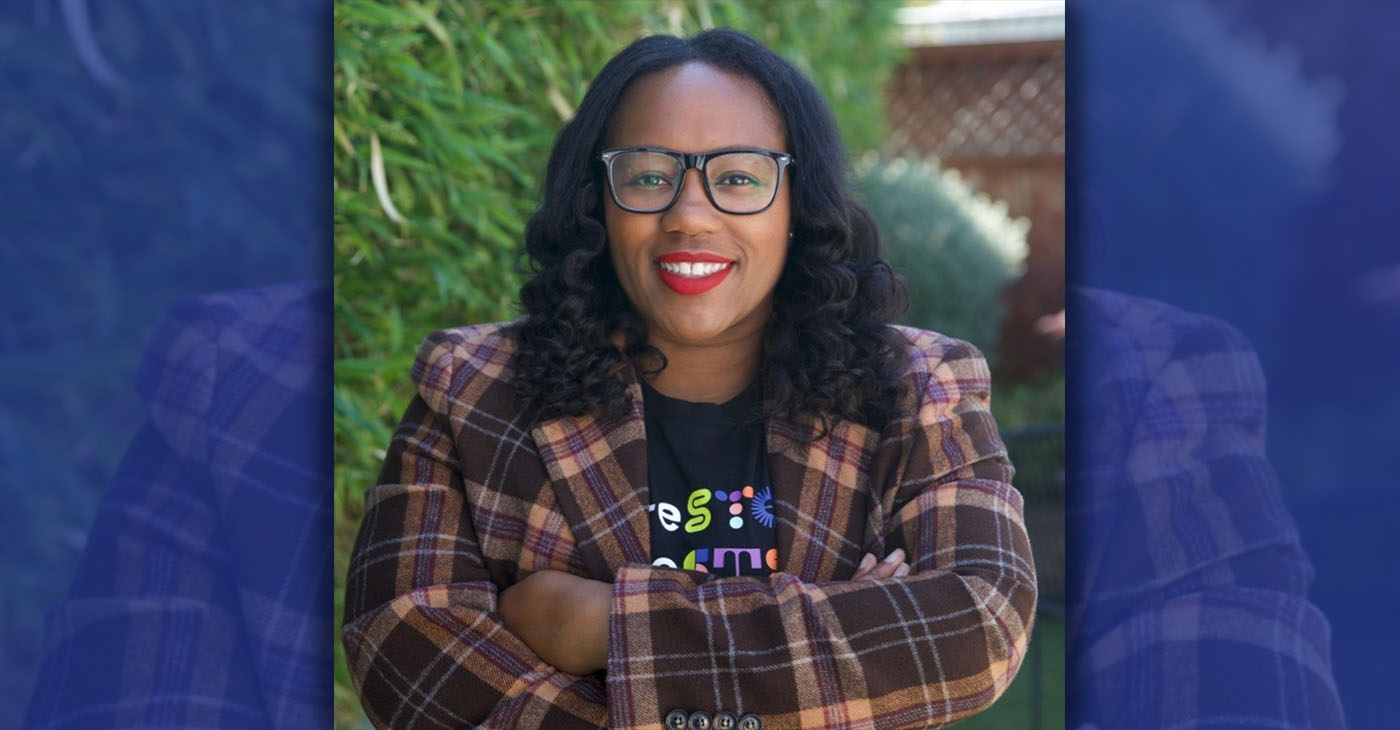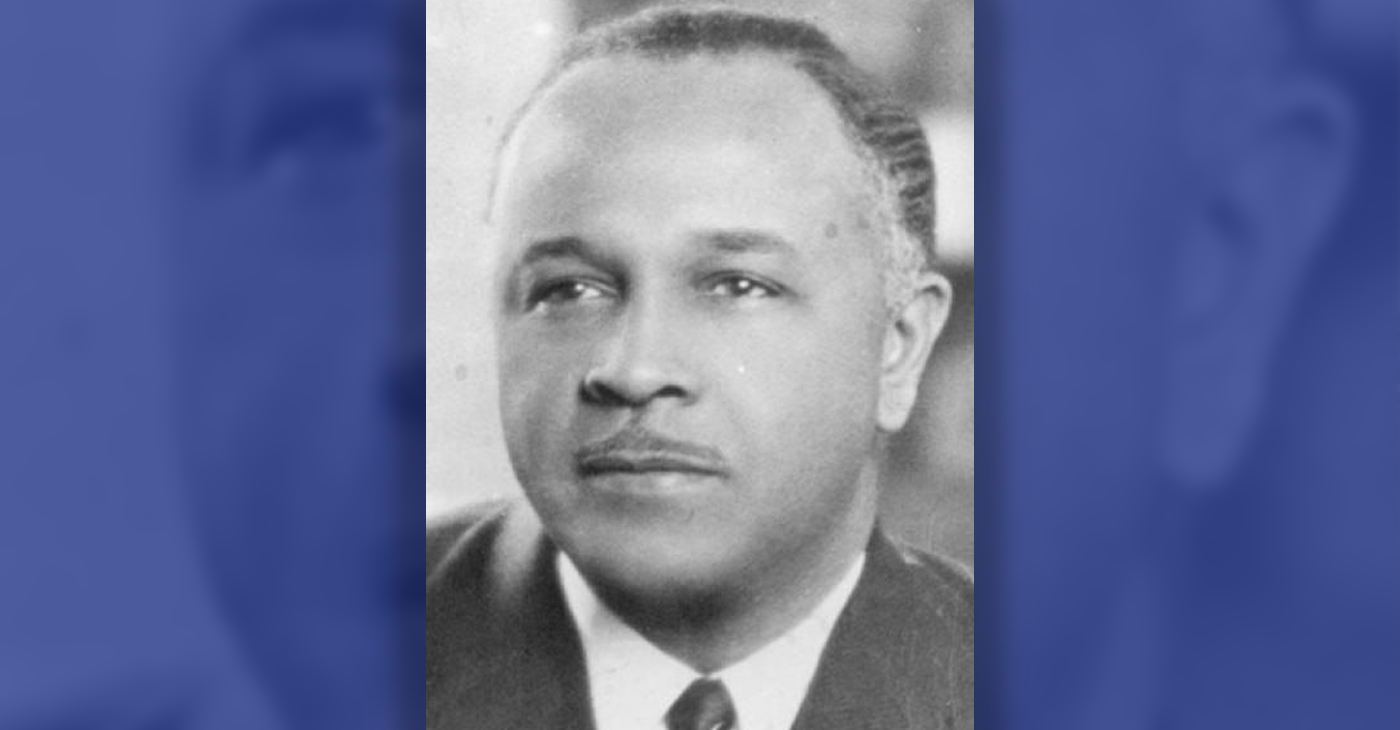Education
OUSD Gives Green Light for Social Justice Website for Teachers and Students
A website with lesson plans for teaching students about social justice issues was taken offline almost eight months ago for review by the Oakland Unified School District (OUSD), prompting complaints that the district was censoring student inquiry.
Putting an end to the dispute, OUSD’s new Superintendent Antwan Wilson announced this week in a statement that the website will be posted again online.
“The Urban Dreams curricular materials provide students an opportunity to read texts that provoke debate,” said Supt. Wilson in the written statement.
The “Urban Dreams” website contains 27 federally funded teaching units designed by teachers to help students explore issues about history and social justice.
 The site was shut down in April after a Fox News story alleged that one of the unions compared Mumia Abu-Jamal to Dr. Martin Luther King, Jr. alleging complaints from the Philadelphia Fraternal Order of Police.
The site was shut down in April after a Fox News story alleged that one of the unions compared Mumia Abu-Jamal to Dr. Martin Luther King, Jr. alleging complaints from the Philadelphia Fraternal Order of Police.
In reality, one lesson in a unit about Dr. Martin Luther King Jr. encouraged students to study current issues of media censorship and distortion in the case of Abu-Jamal, a widely known journalist who is now serving life in prison for the killing of a Philadelphia police officer in 1981.
“Providing our students the opportunity to read complex text, to contemplate higher-order questions, and to engage in rigorous discussion and writing are all activities we value in the Oakland Unified School District,” Supt Wilson said.
“It is for these reasons that I have asked our team to repost the Urban Dreams curriculum, making it available for instructional use in our classrooms.”
Since the website was taken down, it has been under review by the district’s department of Leadership, Curriculum, & Instruction to assess if the material met state academic standards.
In an interview with the Post, OUSD Communications Director Troy Flint recently said a decision to repost the site could be made as soon as December.
The website is expected to be reposted by January with all the original material – including a page supporting the teaching of controversial issues and the best practices to engage students.
Teacher Craig Gordon, the author of unit that prompted the controversy, said, “It’s very good for the materials to be there because…(they) provoke students to think with an open mind and discuss issues in a thoughtful way.
But Gordon still has concerns. “Why did this happen in the first place? He asked.
The debate over “Urban Dreams” has grown to the point that it has involved Pulitzer Prize winning author Alice Walker and Emmy Award-winning actor Ed Asner, who both sent letters to the school district.
Asner wrote: “Urban Dreams website (should) be reinstated without deletions… to let academic freedom prevail.”
In her letter Walker wrote, “I am dismayed to learn that the Oakland school board has dismantled a website of social justice lesson plans because the police objected to it. The board has a duty to defend students’ right to learn against police interference.”
Walker herself was once embroiled in a national censorship battle when OUSD in 1984 banned “The Color Purple,” based on the book’s “sexual and social explicitness” and “troubling ideas about race relations, man’s relationship to God, African history and human sexuality.”
After nine months, the book was approved by the Board of Education.
Activism
A Student-Run Group Provides Critical Support Services to Underserved Residents
Those visiting The Suitcase Clinic can get legal advice, sign up for food assistance, receive housing resources, get medical help, or enjoy a hot, fresh meal. They can also get haircuts and foot washes from the student volunteers. Nilo Golchini, executive director of the clinic, said one of the goals for most of the students working there is helping bridge the gap of trust that exists between many unhoused people and the healthcare and social welfare systems.

Part One
By Magaly Muñoz
Every Tuesday evening, the dining hall of First Presbyterian Church fills up with dozens of people eating, laughing and moving from table to table, receiving much-needed services from UC Berkeley students – just a few blocks away from the university’s campus.
Individuals seeking support services can be found in this multi-stationed room on the south end of the church talking to law students, student case managers, or receiving medical attention in a corner by healthcare professionals.
This weekly event is hosted by Cal students through a volunteer-run program called The Suitcase Clinic.
The clinic, founded in 1989, was intended to offer free resources to underserved communities in Berkeley and surrounding cities. The majority of the clinic’s clientele are unhoused or low-income people looking for extra support.
Those visiting the clinic can get legal advice, sign up for food assistance, receive housing resources, get medical help, or enjoy a hot, fresh meal. They can also get haircuts and foot washes from the student volunteers.
Nilo Golchini, executive director of the clinic, said one of the goals for most of the students working there is helping bridge the gap of trust that exists between many unhoused people and the healthcare and social welfare systems.
During their tenure in the program, many of the students say they become strong advocates for homelessness rights.

Visitors of the Suitcase Clinic can receive haircuts and foot washing by student volunteers every Tuesday evening. Photo by Magaly Muñoz.
“We’re also standing in solidarity with them. So, it’s not saying, ‘I’m going to help you, but I’m also going to stand with you,’” Golchini said.
Student volunteers get extensive training prior to working directly with clients. Those interested have to take a semester-long class to become versed in areas such as outreach, intersectionality, how to interact with unhoused people, how to sign people up for social services. and more.
Volunteers then get to pick from three different clinics: General, Women’s, or Youth and LGBTQ+.
The General Clinic is the most popular among visiting residents, while Women’s and Youth/LQBTQ+ have more specialized services for attendees.
The Women’s Clinic has many of the similar services to General, but also includes nail painting, childcare, and massages.
The Youth and LGBTQ+ Clinic offers a safe space for young people navigating living on the streets, with services that include housing referrals, wellness and recreation classes and employment resources.
Golchini explained that it’s important for them to keep these clinics separate because the different demographics experience poverty and homelessness differently than those who visit the General Clinic.

Suitcase Clinic student workers posing for a photo with a frequent clinic attendee. The Clinic is open to Berkeley unhoused and low-income residents who need medical or legal service, or a hot meal. Photo by Magaly Muñoz.
“We’re able to provide spaces where people can come in and feel safe and not feel like they’re constantly worried that something’s going to happen to them,” she said.
An outreach team also visits encampments every other Saturday in the Berkeley area to provide hygiene kits and encourage people to visit the in-person clinic, if possible.
However, Golchini said engagement has been low for some time now due to a recent decision by the U.S. Supreme Court that allows cities to ban and cite people for sleeping on the streets.
She said a lot of their clientele got displaced to other cities over time, making it difficult to stay in contact with the services the Clinic was providing for them.
But that hasn’t slowed down the students at the Clinic, if anything, it has pushed them to do more for the community they serve.
Activism
Self-eSTEM Empowers BIPOC Women, Girls in Science, Math
In January 2025, Self-eSTEM will launch digital and generative AI programming, which provides digital literacy and AI literacy training through an entrepreneurial project-based activity. This programming will be a hybrid (i.e. in-person and online). Additionally, thanks to a grant from Comcast, in spring 2025, the organization will have a co-ed series for middle and high school students.

By Y’Anad Burrell
Special to The Post
In a world where technology plays an increasingly central role in all aspects of life, the importance of Science, Technology, Engineering, and Math (STEM) education cannot be overstated. Recognizing the significance of STEM for the future, focusing on young women and girls is a critical step in achieving gender equality and empowering the next generation.
Self-eSTEM, an Oakland-based non-profit organization, was founded by Adamaka Ajaelo, an Oakland native who had a successful corporate career with several Bay Area technology and non-tech companies. Ajaelo boldly decided to step away from these companies to give 100% of her time and talent to the non-profit organization she started in 2014 in the belief that she can change the game in innovation and future STEM leaders.
Over the course of a decade, Ajaelo has provided futurist tech programming to more than 2,000 BIPOC women and girls. The organization has an Early STEM Immersion Program for ages 7-17, Emerging Leaders Workshops for ages 18-25 and volunteer network opportunities for ages 25 and up.
In January 2025, Self-eSTEM will launch digital and generative AI programming, which provides digital literacy and AI literacy training through an entrepreneurial project-based activity. This programming will be a hybrid (i.e. in-person and online). Additionally, thanks to a grant from Comcast, in spring 2025, the organization will have a co-ed series for middle and high school students.
While the organization’s programs center on innovation and technology, participants also gain other valuable skills critical for self-development as they prepare for a workforce future. “Self-eSTEM encourages young women to expand on teamwork, communication, creativity, and problem-solving skills. The organization allows young women to enter STEM careers and pathways,” said Trinity Taylor, a seventh-year innovator.
“Our journey over the last decade is a testament to the power of community and opportunity, and I couldn’t be more excited for what the future holds as we continue to break barriers and spark dreams,” said Ajaelo.
“By encouraging girls to explore STEM fields from a young age, we foster their intellectual growth and equip them with the tools needed to thrive in a competitive global economy,” Ajaelo says.
Empowering young girls through STEM education is also a key driver of innovation and progress. When young women and girls are encouraged to pursue careers in STEM, they bring unique perspectives and problem-solving approaches to the table, leading to more diverse and inclusive solutions. This diversity is crucial for driving creativity and pushing boundaries in scientific and technological advancements.
Self-eSTEM has fundraising opportunities year-round, but year-end giving is one of the most critical times to support the program. Visit www.selfestem.org to donate to the organization, as your generosity and support will propel programming support for today’s innovators.
You will also find more details about Self-eSTEM’s programs on their website and social channels @selfestemorg
Black History
Percy Lavon Julian: A Trailblazer and Business Titan in Chemical Innovation
Born in Montgomery, Ala., in 1899, Percy Lavon Julian grew up during a time when educational opportunities for African Americans were severely limited. Despite these challenges, his parents — graduates of what later became Alabama State University — instilled in their children a deep belief in the power of education. Julian excelled academically, graduating valedictorian at Indiana’s DePauw University in 1920.

By Tamara Shiloh
Percy Lavon Julian was a brilliant American chemist and businessman whose groundbreaking discoveries transformed the pharmaceutical industry.
Known for his innovative work in synthesizing medicinal drugs from plants, he was a pioneer who opened new doors in chemical synthesis. One of Julian’s most notable achievements was being the first to synthesize physostigmine, a natural product used to treat glaucoma. His groundbreaking methods for producing human hormones like progesterone and testosterone from plant sterols revolutionized the steroid drug industry. These methods paved the way for the affordable production of life-saving medications such as cortisone, corticosteroids, and artificial hormones for birth control.
Born in Montgomery, Ala., in 1899, Julian grew up during a time when educational opportunities for African Americans were severely limited. Despite these challenges, his parents — graduates of what later became Alabama State University — instilled in their children a deep belief in the power of education. Julian excelled academically, graduating valedictorian at Indiana’s DePauw University in 1920. While his dream was to pursue a doctorate in chemistry, racial barriers initially stood in his way. Undeterred, he eventually earned his Ph.D. from the University of Vienna in 1931, becoming one of the first African Americans to achieve this milestone.
Returning to the United States, Julian faced discrimination that made it difficult to secure academic or research positions. Despite being denied jobs due to his race — even from prestigious companies like DuPont — he persevered. His big break came at the Glidden Company, where he led the Soy Products Division. At Glidden, Julian spearheaded several important projects. He developed the world’s first plant for industrial-scale production of isolated soy protein, which served as an affordable alternative to milk in various products. During World War II, his refined soy protein was used to create Aer-O-Foam, a lifesaving firefighting foam for the U.S. Navy. This achievement earned him the NAACP’s Spingarn Medal in 1947. Later, Julian turned his focus to synthesizing hormones from plant sterols, revolutionizing the production of cortisone and other critical medications. His cost-effective methods made these treatments more widely available, improving the lives of countless patients worldwide. Eventually, he founded Julian Laboratories, Inc., solidifying his legacy as a leader in steroid chemistry and pharmaceutical innovation. Julian Laboratories chemists found a way to quadruple the yield on a product on which they were barely breaking even. Julian reduced their price per kg for the product from $4,000 to $400. He sold the company in 1961 for $2.3 million (equivalent to $23 million today) and became one of the first Black millionaires.
The U.S. and Mexico facilities were purchased by Smith Kline, and Julian’s chemical plant in Guatemala was purchased by Upjohn. In 1964, Julian founded Julian Associates and Julian Research Institute, which he managed for the rest of his life.
Julian also helped to establish the Legal Defense and Educational Fund of Chicago.
-

 Activism4 weeks ago
Activism4 weeks agoOakland Post: Week of November 20 – 26, 2024
-

 California Black Media3 weeks ago
California Black Media3 weeks agoCalifornia to Offer $43.7 Million in Federal Grants to Combat Hate Crimes
-

 Activism4 weeks ago
Activism4 weeks agoAn Inside Look into How San Francisco Analyzes Homeless Encampments
-

 Black History3 weeks ago
Black History3 weeks agoEmeline King: A Trailblazer in the Automotive Industry
-

 California Black Media3 weeks ago
California Black Media3 weeks agoCalifornia Department of Aging Offers Free Resources for Family Caregivers in November
-

 California Black Media3 weeks ago
California Black Media3 weeks agoGov. Newsom Goes to Washington to Advocate for California Priorities
-

 Activism3 weeks ago
Activism3 weeks agoOCCUR Hosts “Faith Forward” Conference in Oakland
-

 #NNPA BlackPress4 weeks ago
#NNPA BlackPress4 weeks agoPRESS ROOM: Clyburn, Pressley, Scanlon, Colleagues Urge Biden to Use Clemency Power to Address Mass Incarceration Before Leaving Office


























































